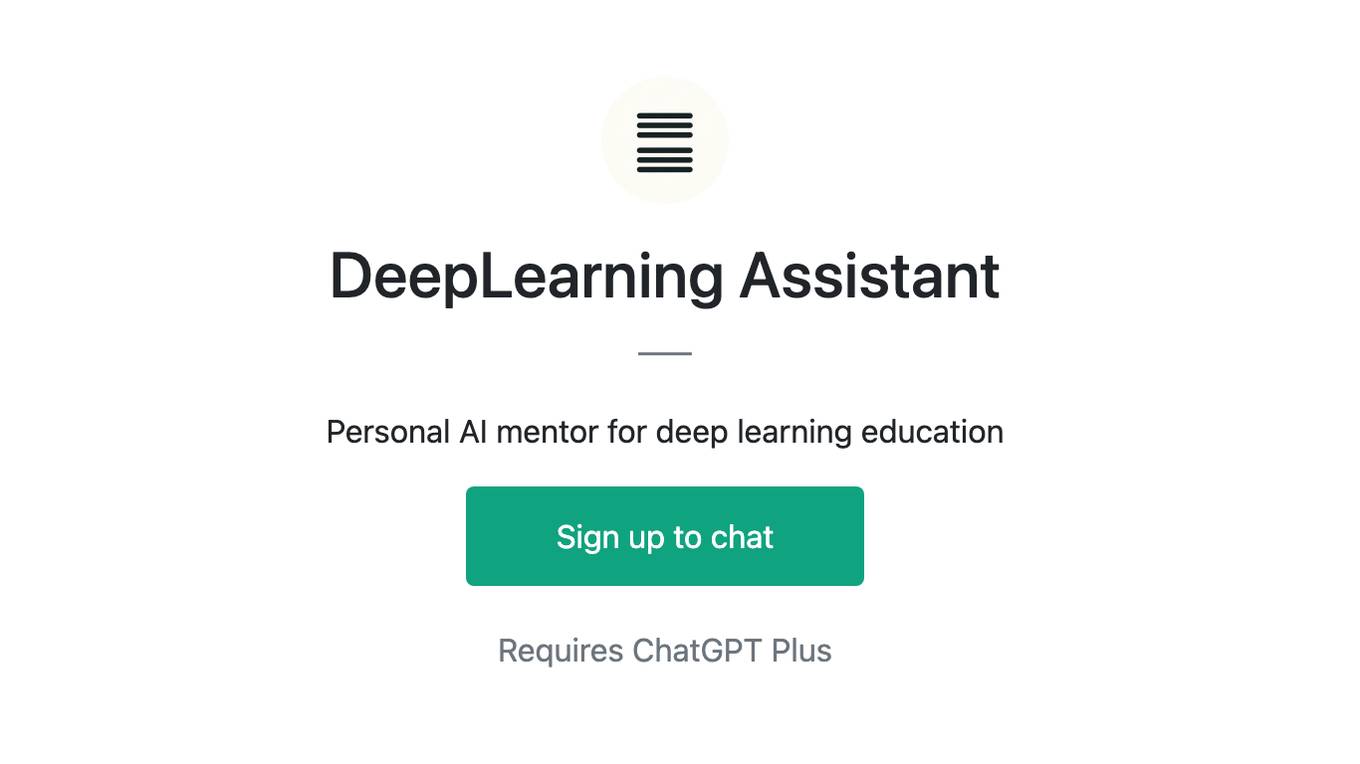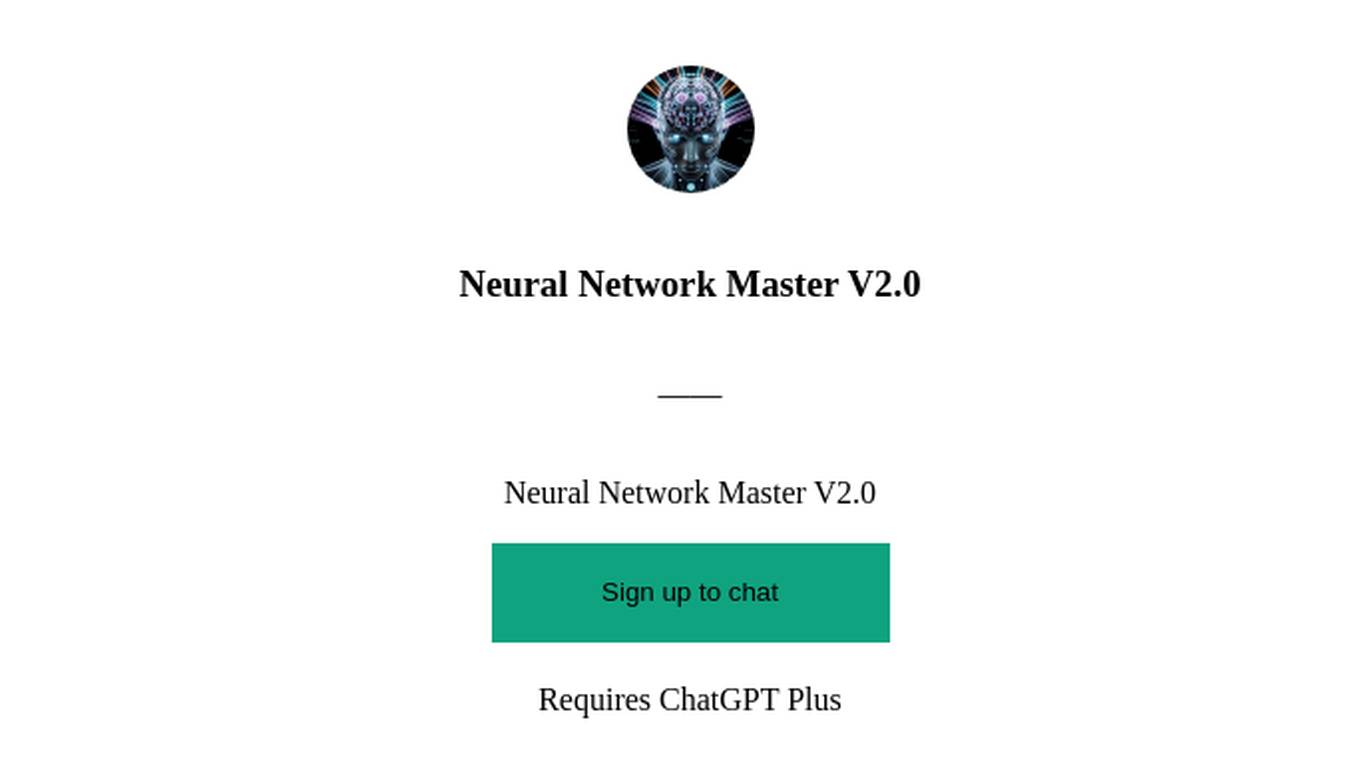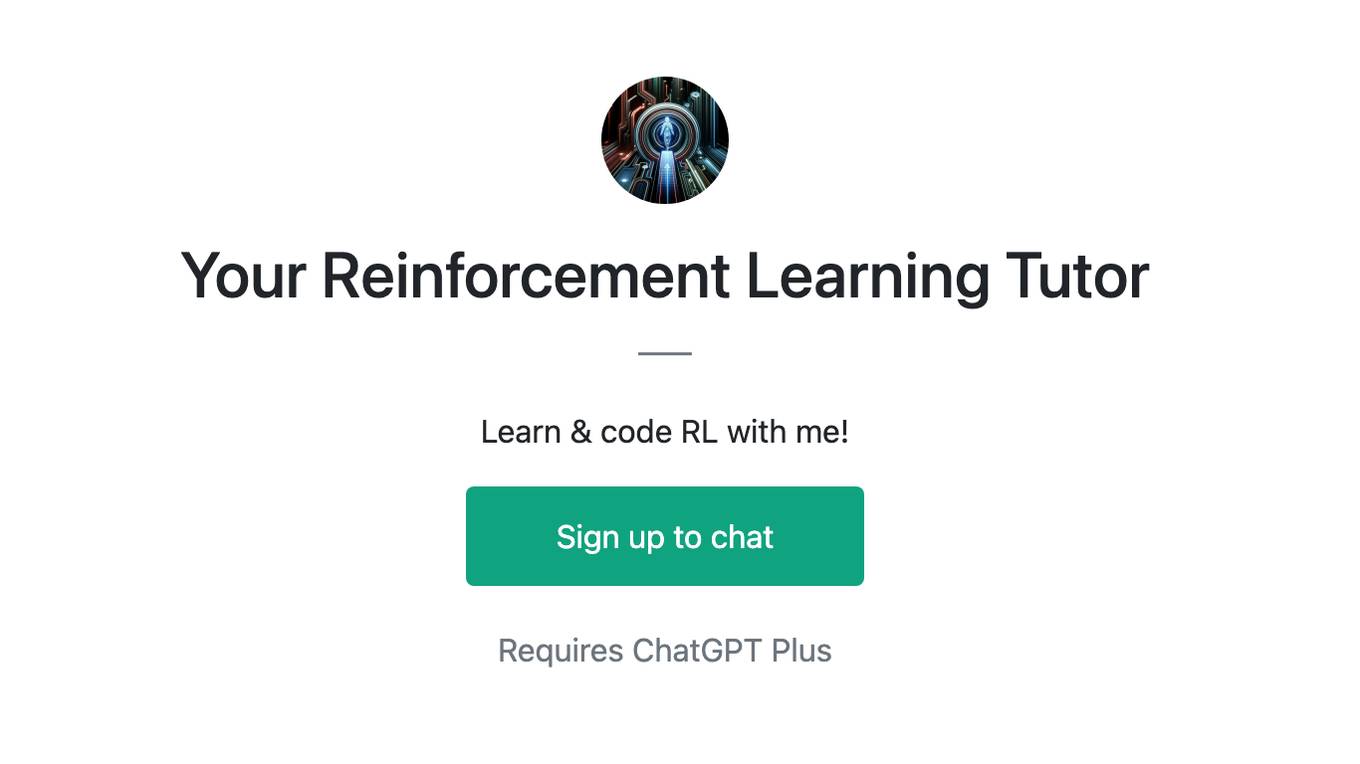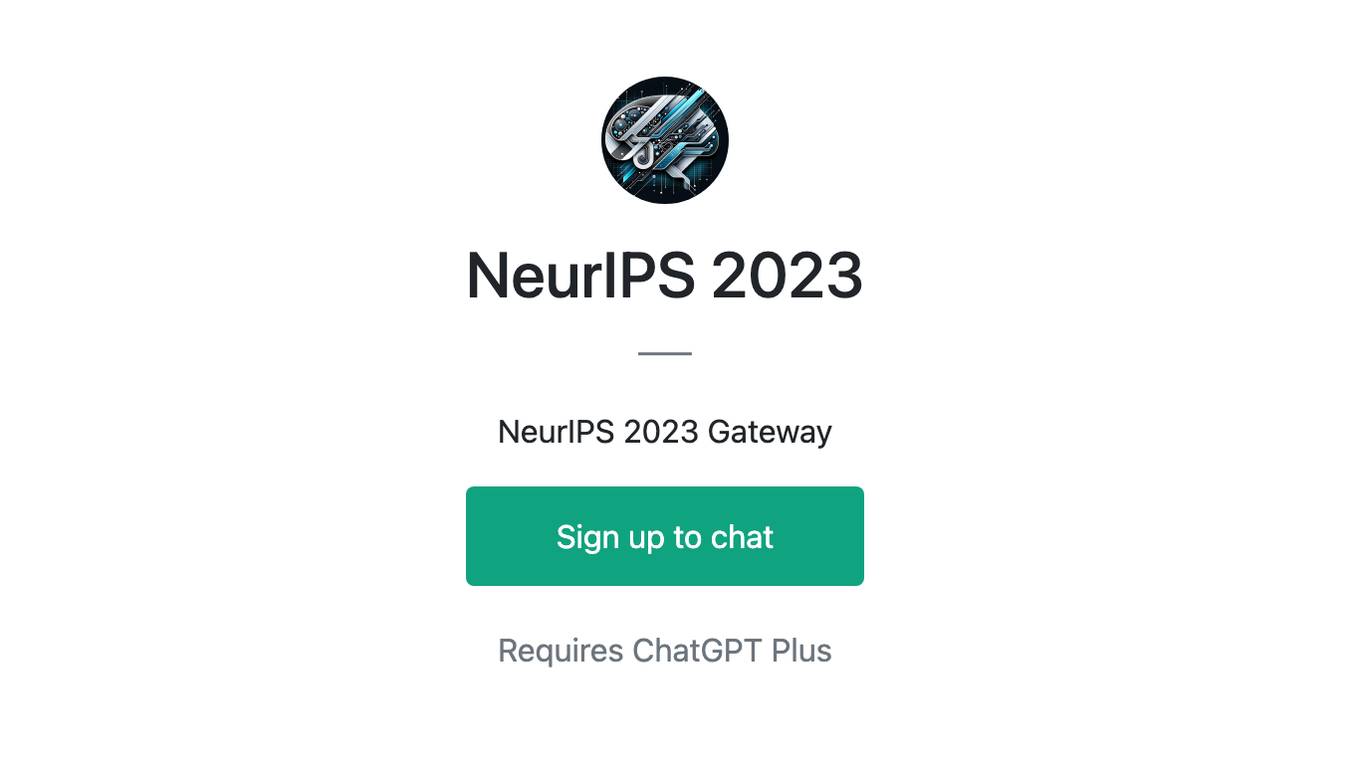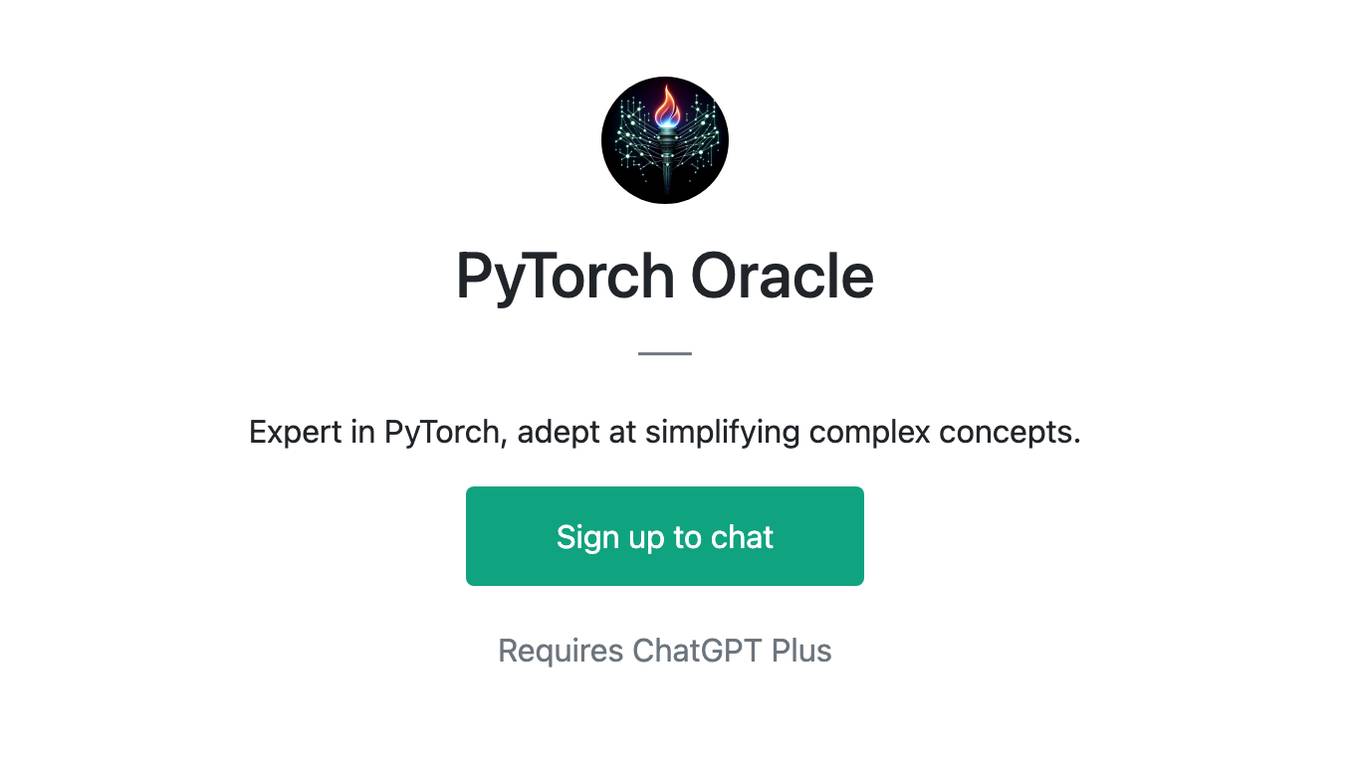Best AI tools for< Train Networks >
20 - AI tool Sites
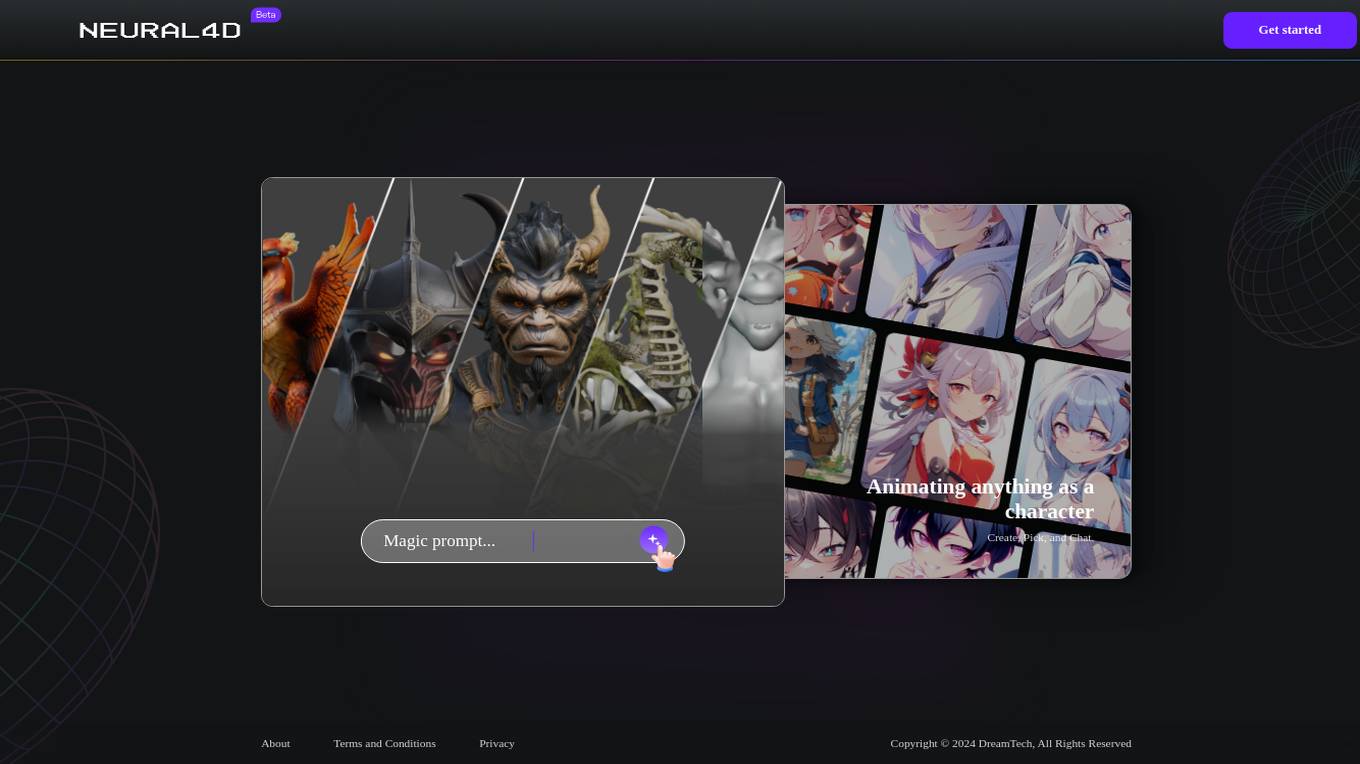
Neural4D
Neural4D is an AI tool designed to provide advanced neural network solutions. It offers a range of features for deep learning applications, including image recognition, natural language processing, and predictive analytics. With Neural4D, users can build and train complex neural networks to solve various real-world problems. The tool is user-friendly and suitable for both beginners and experienced AI practitioners.
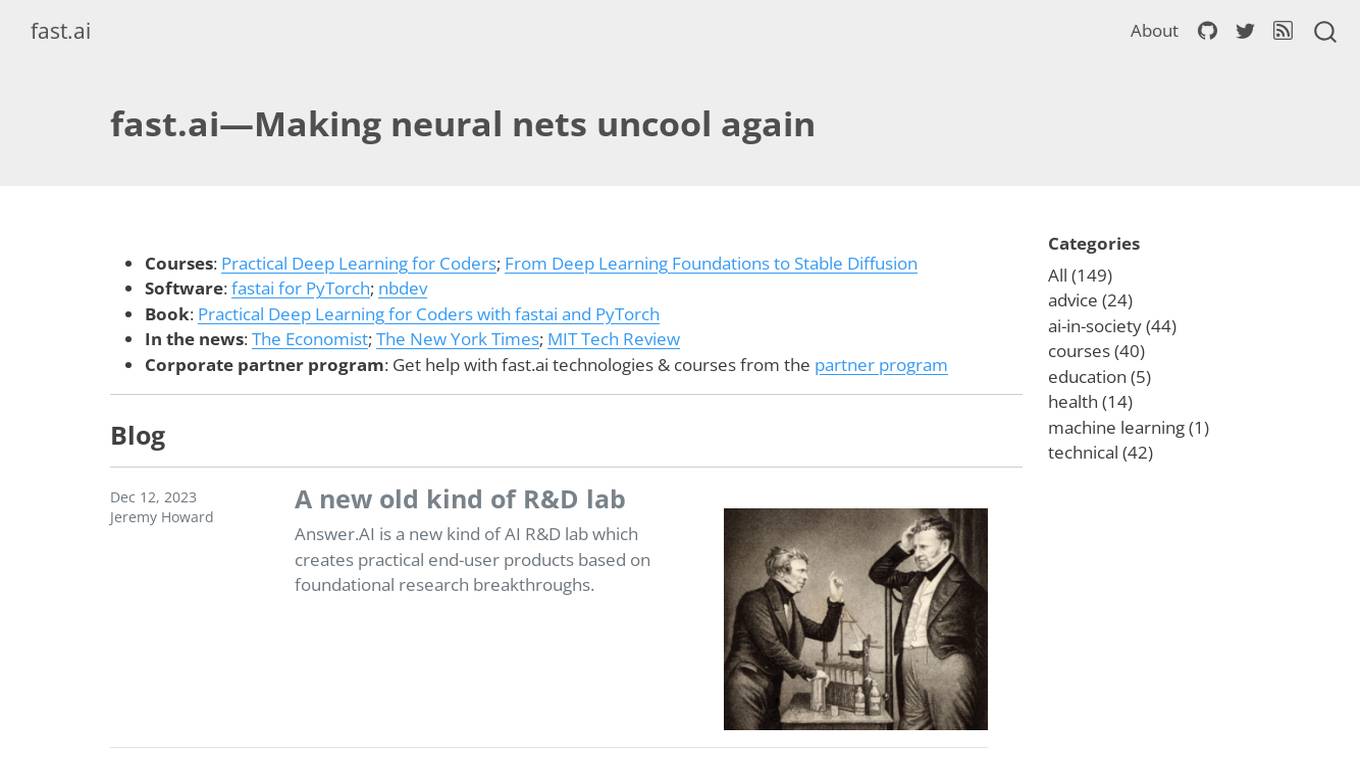
fast.ai
fast.ai is an AI tool that offers courses and resources on deep learning and practical applications of artificial intelligence. The platform provides high-level components for practitioners to achieve state-of-the-art results in standard deep learning tasks. It aims to increase diversity in the field of deep learning and lower barriers to entry for everyone.
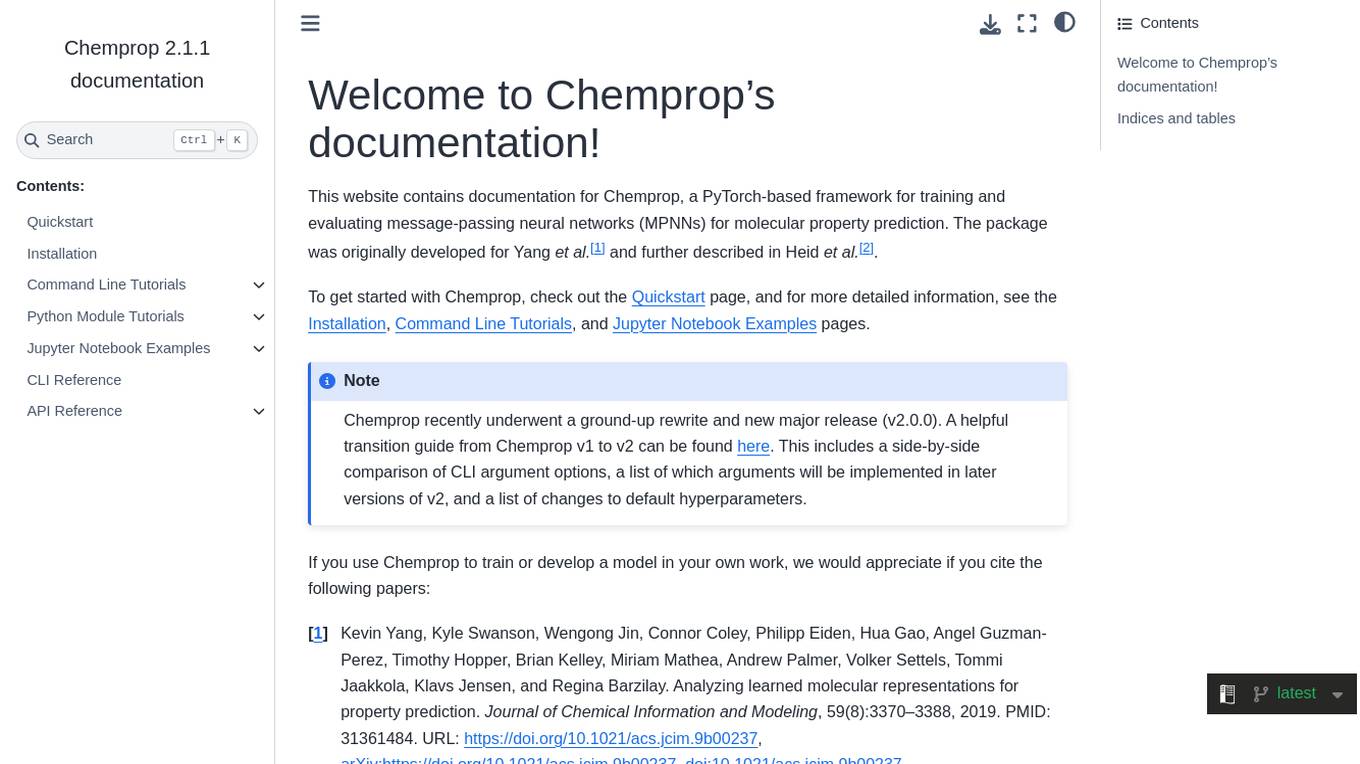
Chemprop
Chemprop is a PyTorch-based framework for training and evaluating message-passing neural networks (MPNNs) for molecular property prediction. Originally developed for research purposes, Chemprop offers a comprehensive set of tools and features for training models and analyzing molecular representations. The package underwent a recent major release (v2.0.0) with significant improvements and updates.
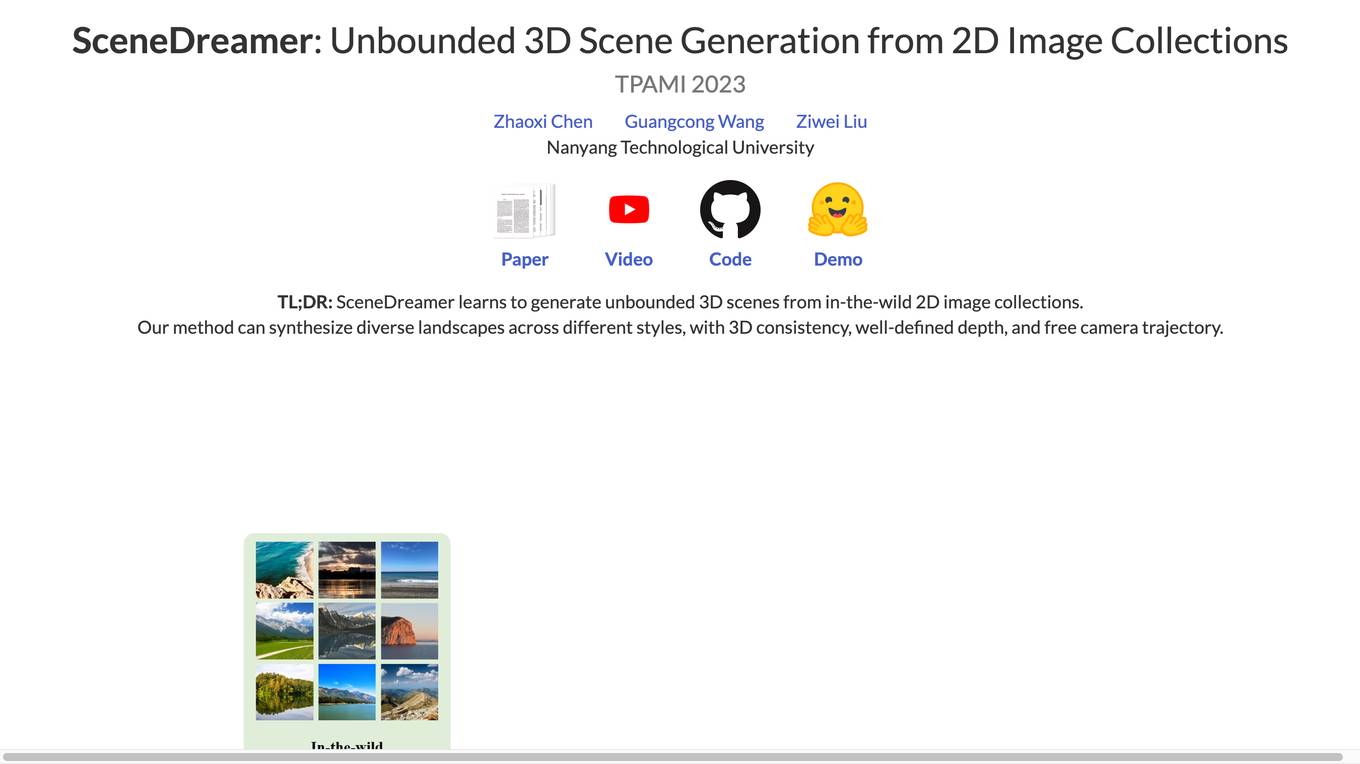
SceneDreamer
SceneDreamer is an AI tool that learns to generate unbounded 3D scenes from in-the-wild 2D image collections. It synthesizes diverse landscapes with 3D consistency, well-defined depth, and free camera trajectory. The framework comprises an efficient 3D scene representation, generative scene parameterization, and a neural volumetric renderer. SceneDreamer does not require 3D annotations and demonstrates superiority over state-of-the-art methods in generating vivid and diverse unbounded 3D worlds.
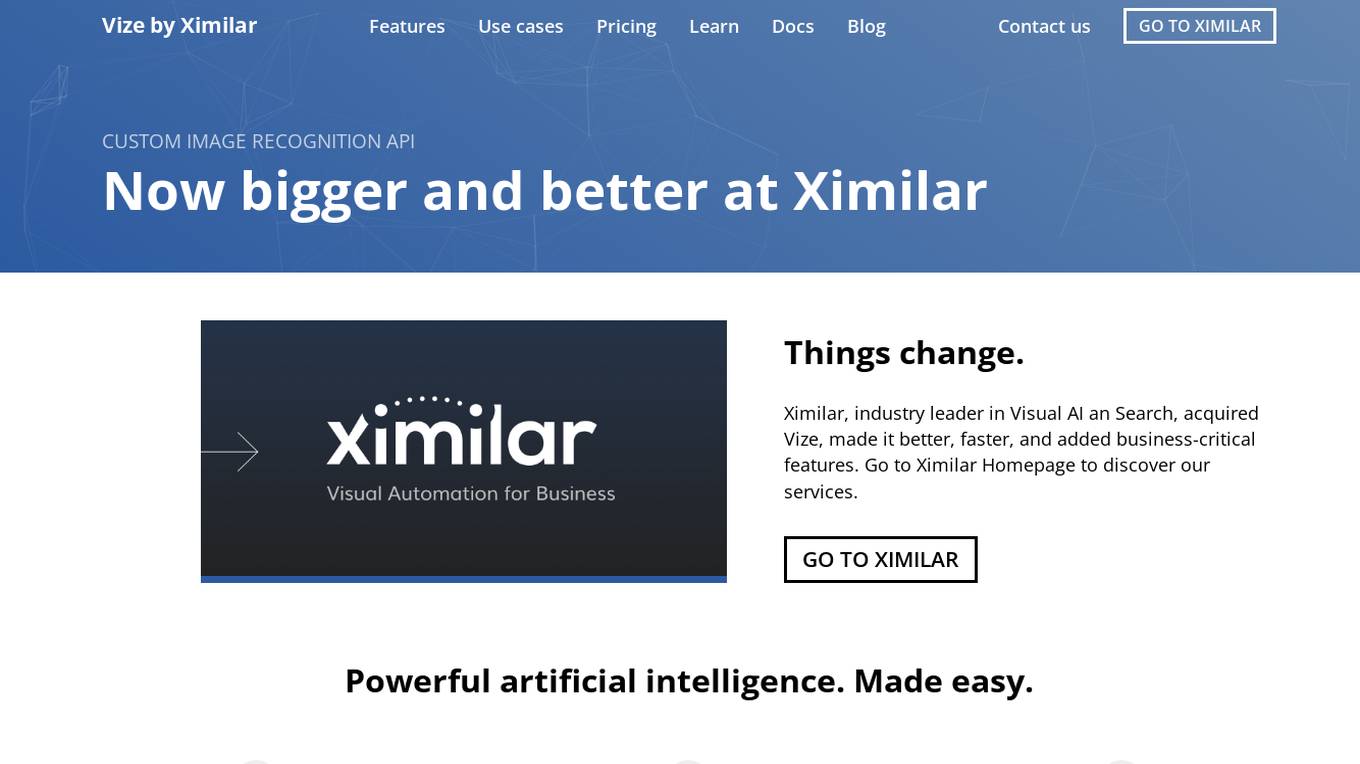
Vize.ai
Vize.ai is a custom image recognition API provided by Ximilar, a leading company in Visual AI and Search. The tool offers powerful artificial intelligence capabilities with high accuracy using deep learning algorithms. It allows users to easily set up and implement cutting-edge vision automation without any development costs. Vize.ai enables users to train custom neural networks to recognize specific images and provides a scalable solution with continuous improvements in machine learning algorithms. The tool features an intuitive interface that requires no machine learning or coding knowledge, making it accessible for a wide range of users across industries.

Stockpulse
Stockpulse is an AI-powered platform that analyzes financial news and communities using Artificial Intelligence. It provides decision support for operations by collecting, filtering, and converting unstructured data into processable information. With extensive coverage of financial media sources globally, Stockpulse offers unique historical data, sentiment analysis, and AI-driven insights for various sectors in the financial markets.

Global Blockchain Show
The Global Blockchain Show is an annual event that brings together experts and enthusiasts in the blockchain and AI industries. The event features a variety of speakers, workshops, and exhibitions, and provides a platform for attendees to learn about the latest developments in these fields. The 2024 Global Blockchain Show will be held in Dubai, UAE, from April 16-17. The event will feature a keynote address from Sophia, the world's most famous humanoid robot, as well as presentations from other leading experts in the blockchain and AI fields. Attendees will also have the opportunity to network with other professionals in the industry and learn about the latest products and services from leading companies. The Global Blockchain Show is a must-attend event for anyone interested in the latest developments in blockchain and AI.
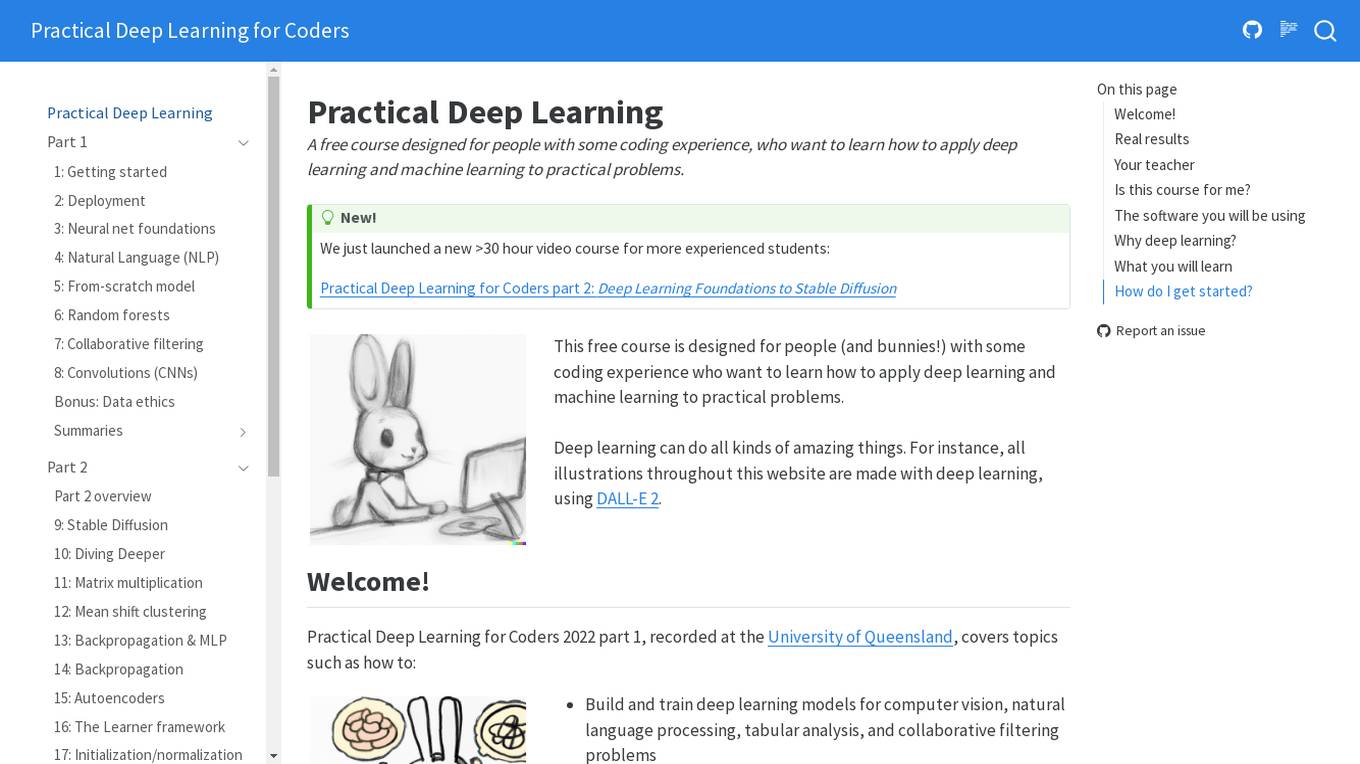
Practical Deep Learning for Coders
Practical Deep Learning for Coders is a free course designed for individuals with some coding experience who want to learn how to apply deep learning and machine learning to practical problems. The course covers topics such as building and training deep learning models for computer vision, natural language processing, tabular analysis, and collaborative filtering problems. It is based on a 5-star rated book and does not require any special hardware or software. The course is led by Jeremy Howard, a renowned expert in machine learning and the President and Chief Scientist of Kaggle.
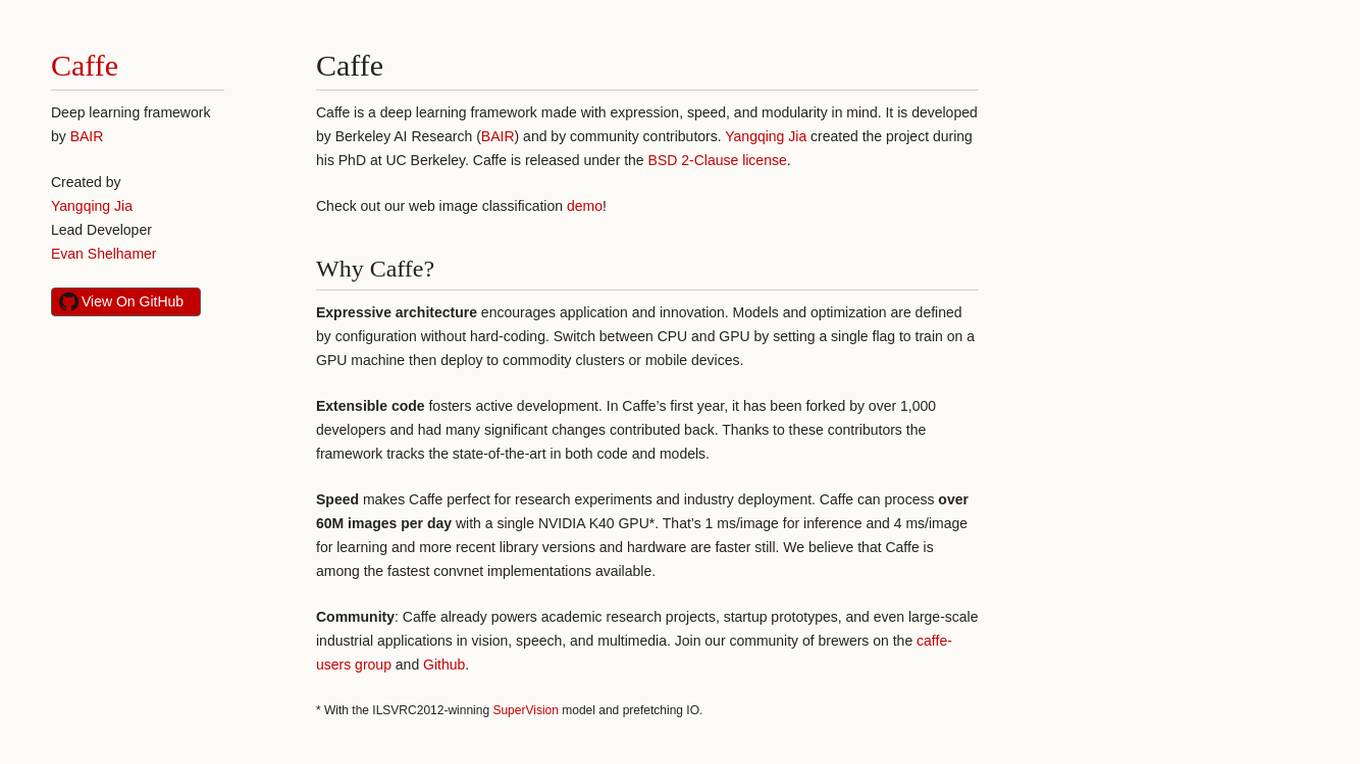
Caffe
Caffe is a deep learning framework developed by Berkeley AI Research (BAIR) and community contributors. It is designed for speed, modularity, and expressiveness, allowing users to define models and optimization through configuration without hard-coding. Caffe supports both CPU and GPU training, making it suitable for research experiments and industry deployment. The framework is extensible, actively developed, and tracks the state-of-the-art in code and models. Caffe is widely used in academic research, startup prototypes, and large-scale industrial applications in vision, speech, and multimedia.
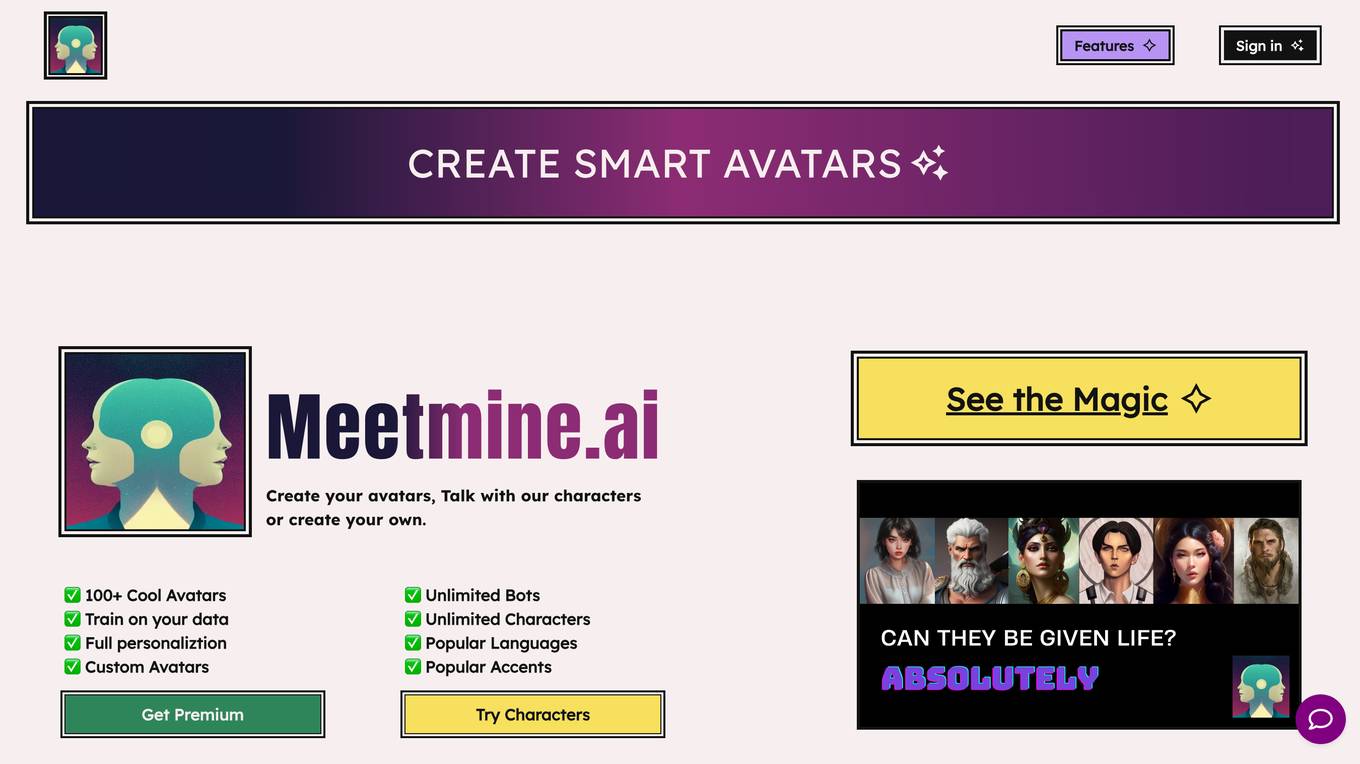
MeetMine AI
MeetMine AI is a platform that allows users to create and interact with AI-powered characters and bots. These characters and bots can be used for a variety of purposes, including customer support, education, and entertainment. MeetMine AI's characters are designed to be realistic and engaging, and they can be customized to fit the user's needs. The platform also offers a variety of features that make it easy to create and manage characters and bots.

Trulience
Trulience is an interactive digital avatar platform that uses conversational AI to power super realistic avatars. These avatars are created from real human data using AI and machine learning, and can be rendered in the cloud or browser. Trulience's ambition is to humanize artificial intelligence by creating lifelike digital humans that can engage in natural conversations with real people. The company's technology uses advanced natural language processing, neural networks, auto-encoders, and high-end CGI to create compelling services that allow people to interact with virtual human beings.
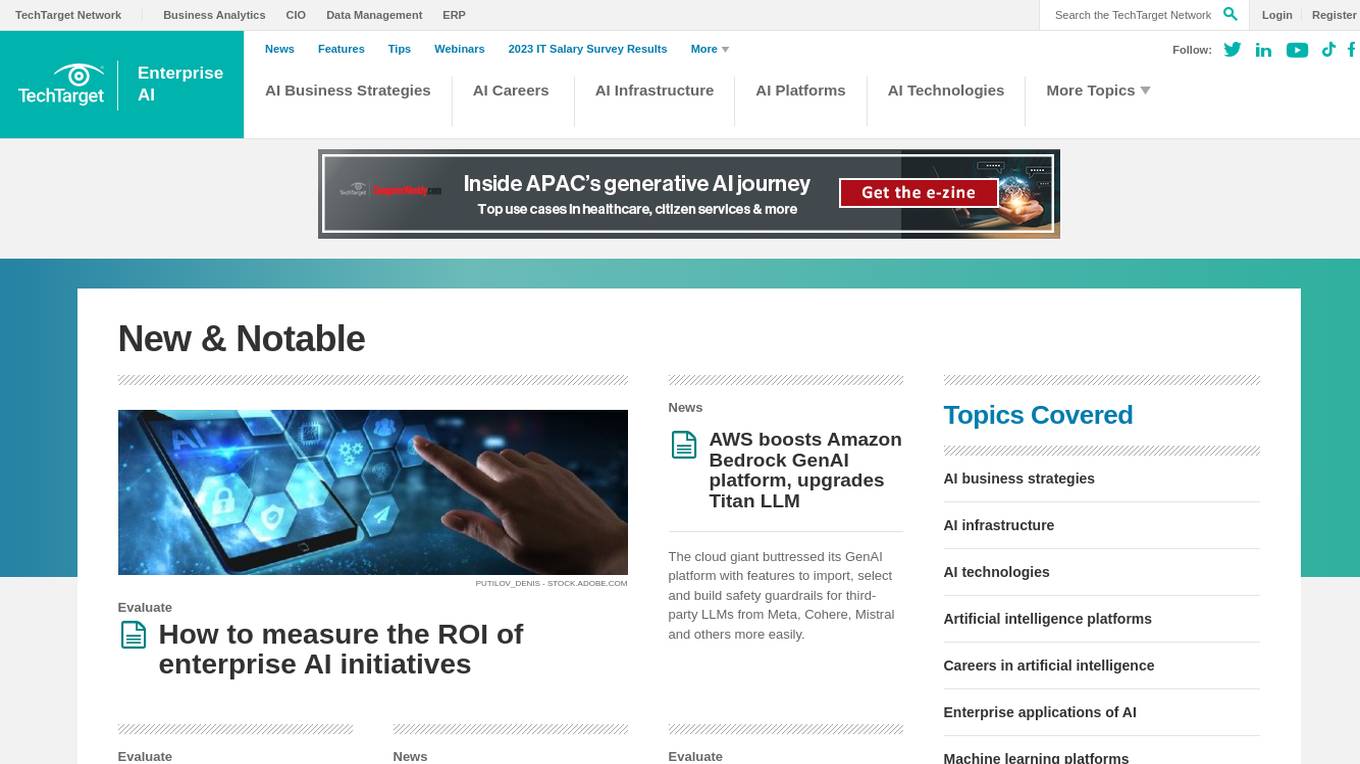
Enterprise AI
Enterprise AI provides comprehensive information, news, and tips on artificial intelligence (AI) for businesses. It covers various aspects of AI, including AI business strategies, AI infrastructure, AI technologies, AI platforms, careers in AI, and enterprise applications of AI. The website offers insights into the latest AI trends, best practices, and industry news. It also provides resources such as e-books, webinars, and podcasts to help businesses understand and implement AI solutions.
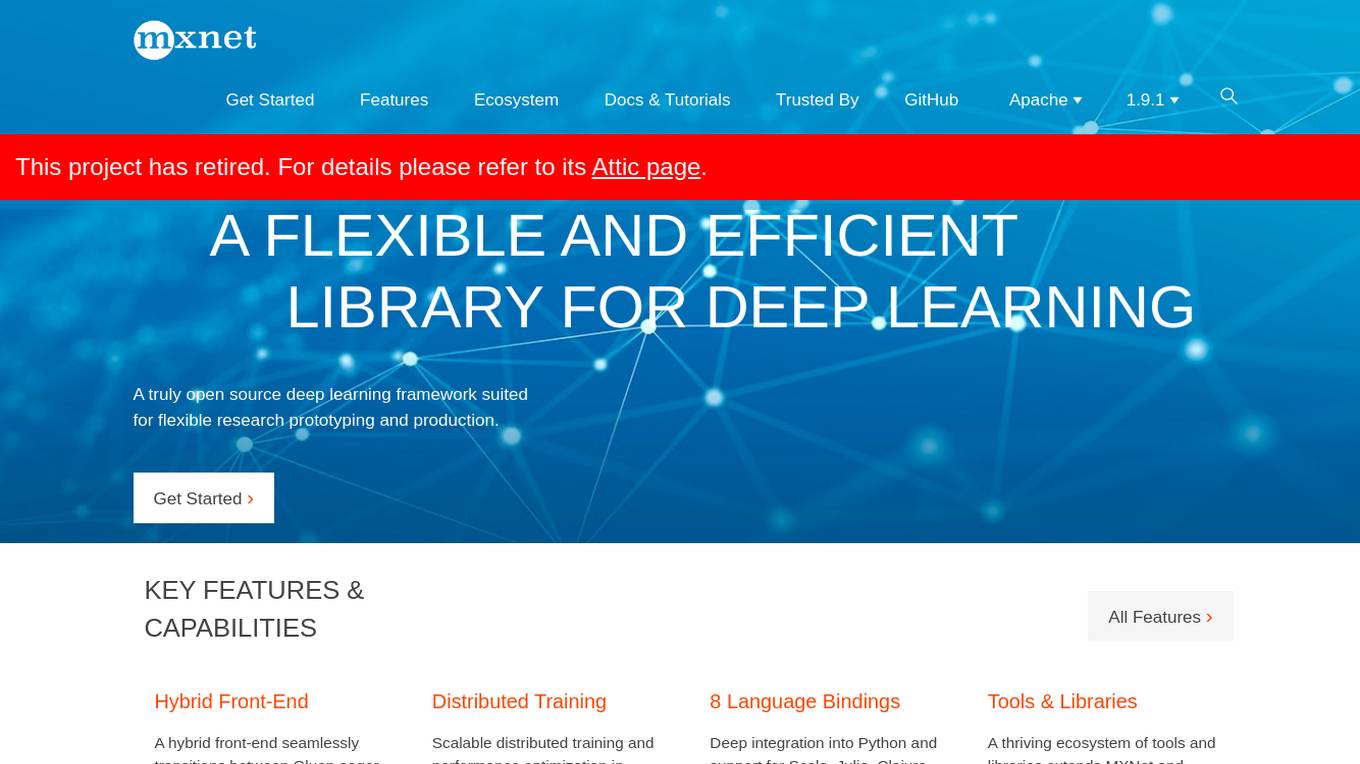
Apache MXNet
Apache MXNet is a flexible and efficient deep learning library designed for research, prototyping, and production. It features a hybrid front-end that seamlessly transitions between imperative and symbolic modes, enabling both flexibility and speed. MXNet also supports distributed training and performance optimization through Parameter Server and Horovod. With bindings for multiple languages, including Python, Scala, Julia, Clojure, Java, C++, R, and Perl, MXNet offers wide accessibility. Additionally, it boasts a thriving ecosystem of tools and libraries that extend its capabilities in computer vision, NLP, time series, and more.

PhotoLeaf AI
PhotoLeaf AI is an AI-powered tool that allows users to create stunning profile pictures in over 20+ styles. With just 20 photos of yourself, PhotoLeaf AI will train its AI to generate 300+ photorealistic profile pictures that are perfect for social media, dating apps, and professional networks. The tool is easy to use and takes just a few minutes to create your new avatars. PhotoLeaf AI also offers a free retraining if you are not happy with the results.

TensorFlow
TensorFlow is an end-to-end platform for machine learning. It provides a wide range of tools and resources to help developers build, train, and deploy ML models. TensorFlow is used by researchers and developers all over the world to solve real-world problems in a variety of domains, including computer vision, natural language processing, and robotics.

AI Seed Phrase Finder & BTC balance checker tool for Windows PC
The AI Seed Phrase Finder & BTC balance checker tool for Windows PC is an innovative application designed to prevent the loss of access to Bitcoin wallets. Leveraging advanced algorithms and artificial intelligence techniques, this program efficiently analyzes vast amounts of data to pre-train AI models. Consequently, it generates and searches for mnemonic phrases that grant access to abandoned Bitcoin wallets holding nonzero balances. With the “AI Seed Finder tool for Windows PC”, locating a complete 12-word seed phrase for a specific Bitcoin wallet becomes effortless. Even if you possess only partial knowledge of the mnemonic phrase or individual words comprising it, this tool can swiftly identify the entire seed phrase. Furthermore, by providing the address of a specific Bitcoin wallet you wish to regain access to, the program narrows down the search area. This targeted approach significantly enhances the program’s efficiency and reduces the time required to ascertain the correct mnemonic phrase.
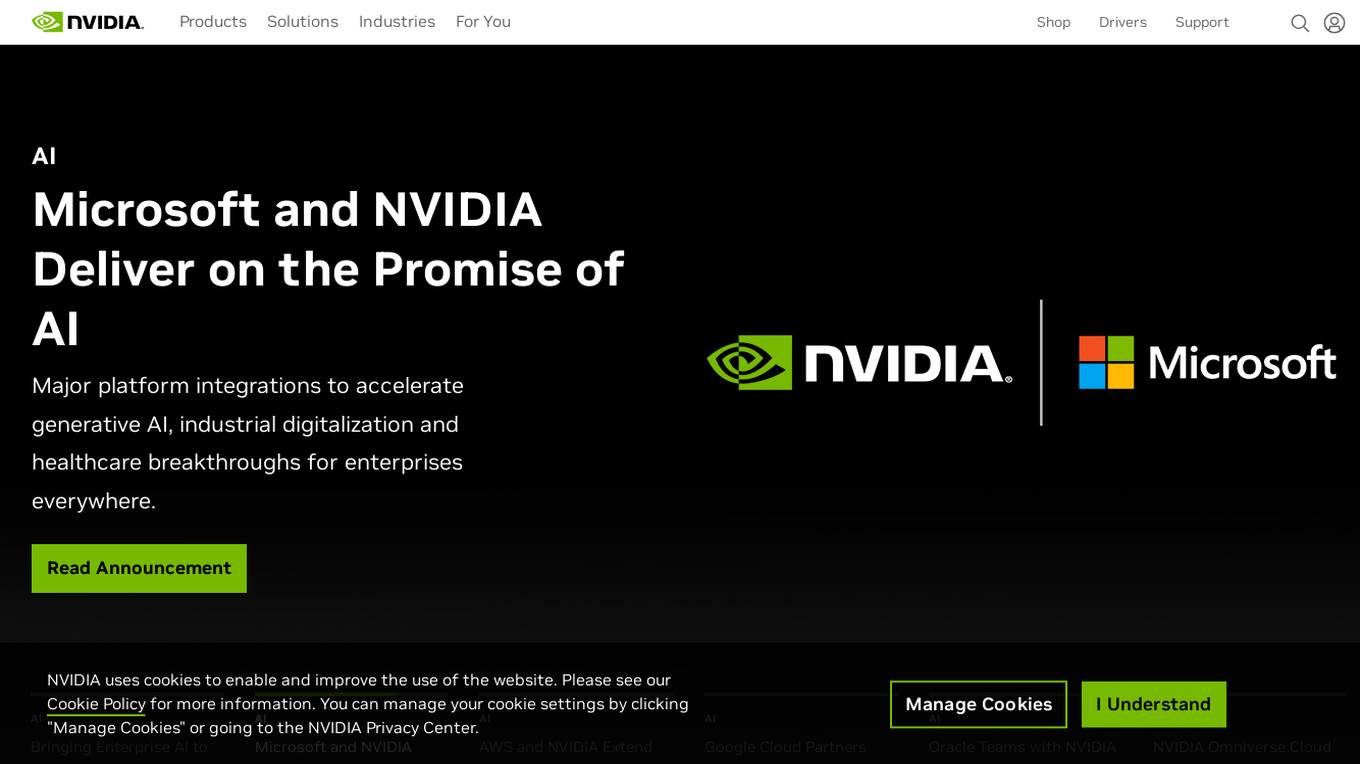
NVIDIA
NVIDIA is a world leader in artificial intelligence computing. The company's products and services are used by businesses and governments around the world to develop and deploy AI applications. NVIDIA's AI platform includes hardware, software, and tools that make it easy to build and train AI models. The company also offers a range of cloud-based AI services that make it easy to deploy and manage AI applications. NVIDIA's AI platform is used in a wide variety of industries, including healthcare, manufacturing, retail, and transportation. The company's AI technology is helping to improve the efficiency and accuracy of a wide range of tasks, from medical diagnosis to product design.
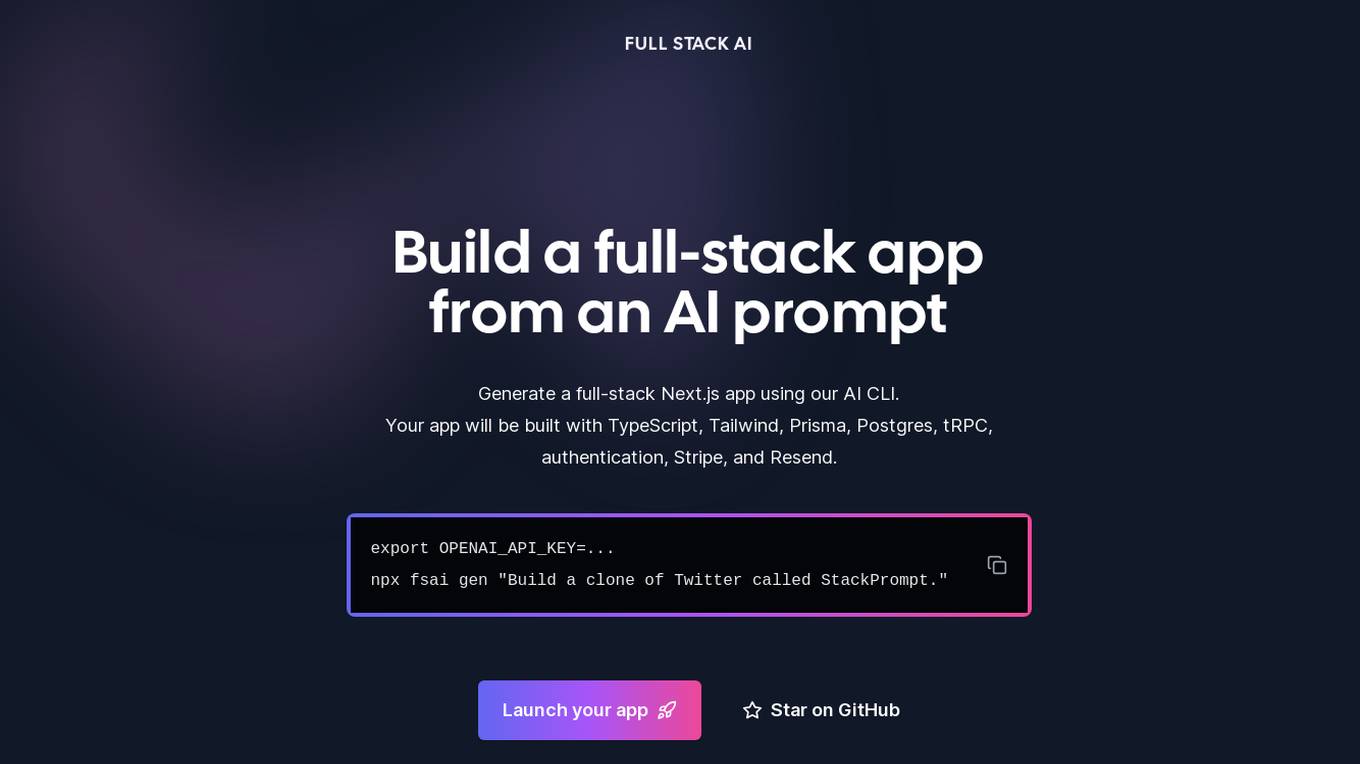
Full Stack AI
Full Stack AI is a tool that allows users to generate a full-stack Next.js app using an AI CLI. The app will be built with TypeScript, Tailwind, Prisma, Postgres, tRPC, authentication, Stripe, and Resend.
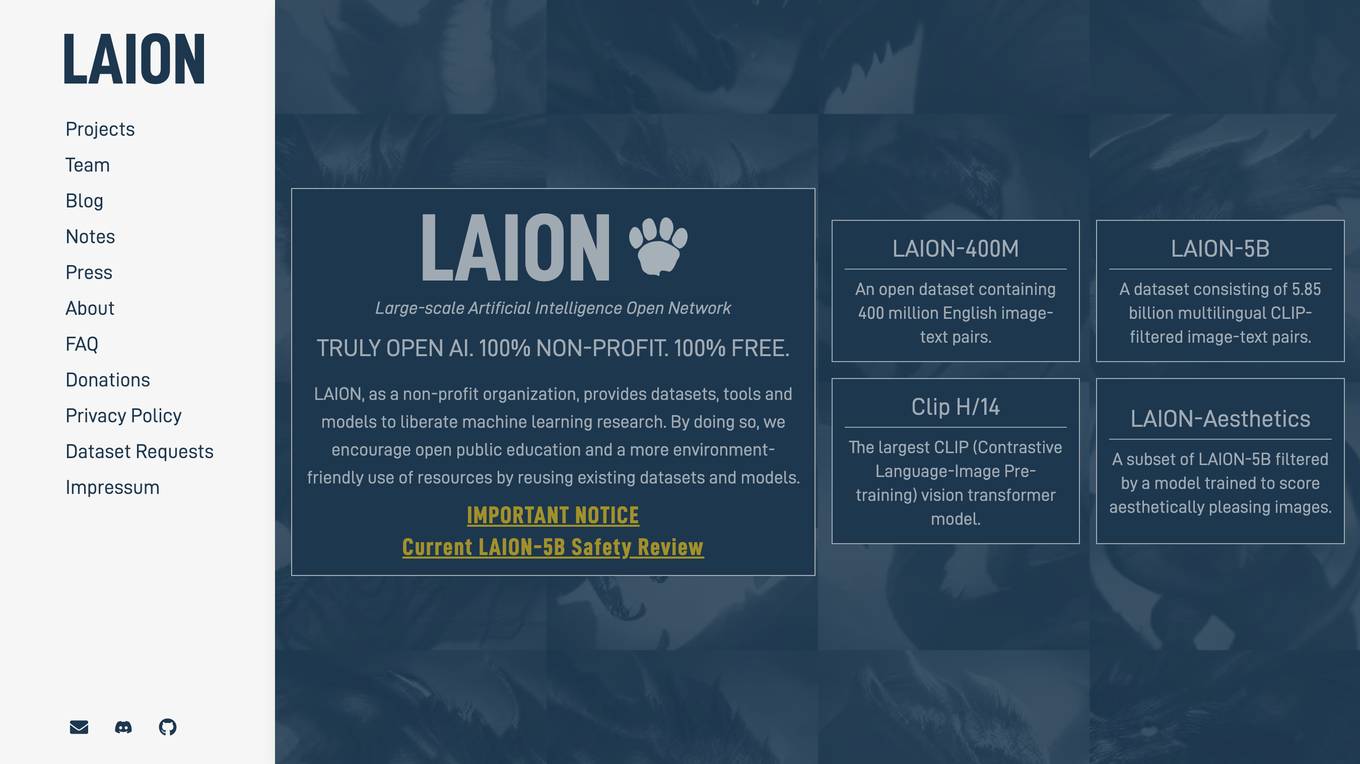
LAION
LAION is a non-profit organization that provides datasets, tools, and models to advance machine learning research. The organization's goal is to promote open public education and encourage the reuse of existing datasets and models to reduce the environmental impact of machine learning research.
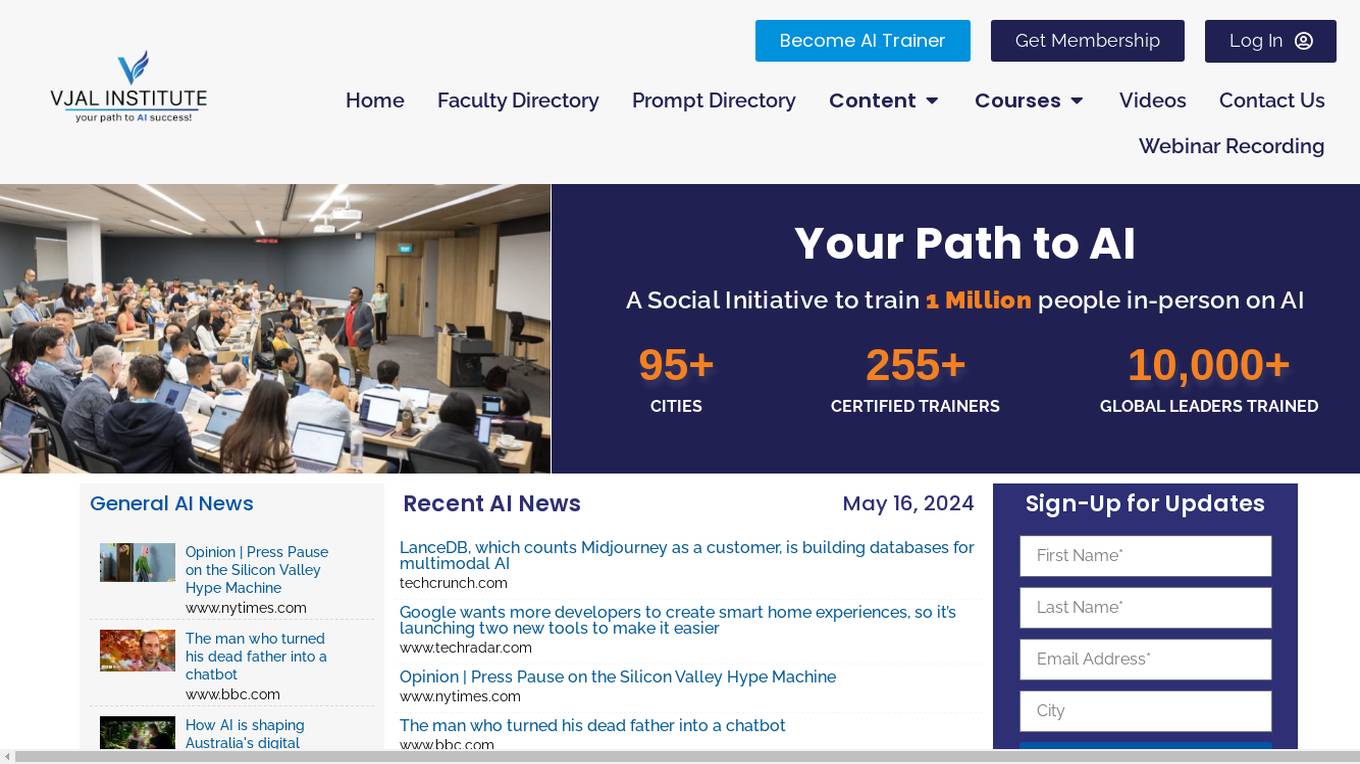
VJAL Institute
VJAL Institute is an AI training platform that aims to empower individuals and organizations with the knowledge and skills needed to thrive in the field of artificial intelligence. Through a variety of courses, workshops, and online resources, VJAL Institute provides comprehensive training on AI technologies, applications, and best practices. The platform also offers opportunities for networking, collaboration, and certification, making it a valuable resource for anyone looking to enhance their AI expertise.
1 - Open Source AI Tools
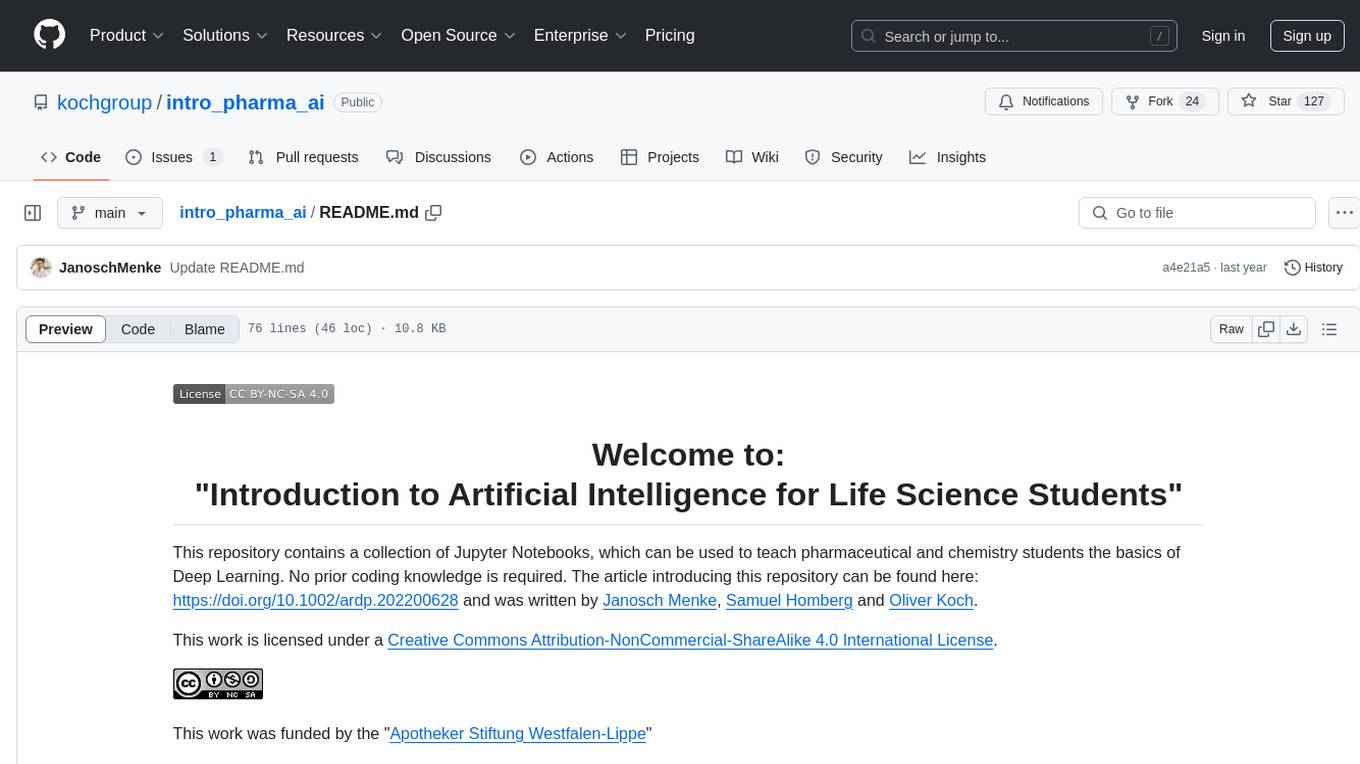
intro_pharma_ai
This repository serves as an educational resource for pharmaceutical and chemistry students to learn the basics of Deep Learning through a collection of Jupyter Notebooks. The content covers various topics such as Introduction to Jupyter, Python, Cheminformatics & RDKit, Linear Regression, Data Science, Linear Algebra, Neural Networks, PyTorch, Convolutional Neural Networks, Transfer Learning, Recurrent Neural Networks, Autoencoders, Graph Neural Networks, and Summary. The notebooks aim to provide theoretical concepts to understand neural networks through code completion, but instructors are encouraged to supplement with their own lectures. The work is licensed under a Creative Commons Attribution-NonCommercial-ShareAlike 4.0 International License.
20 - OpenAI Gpts
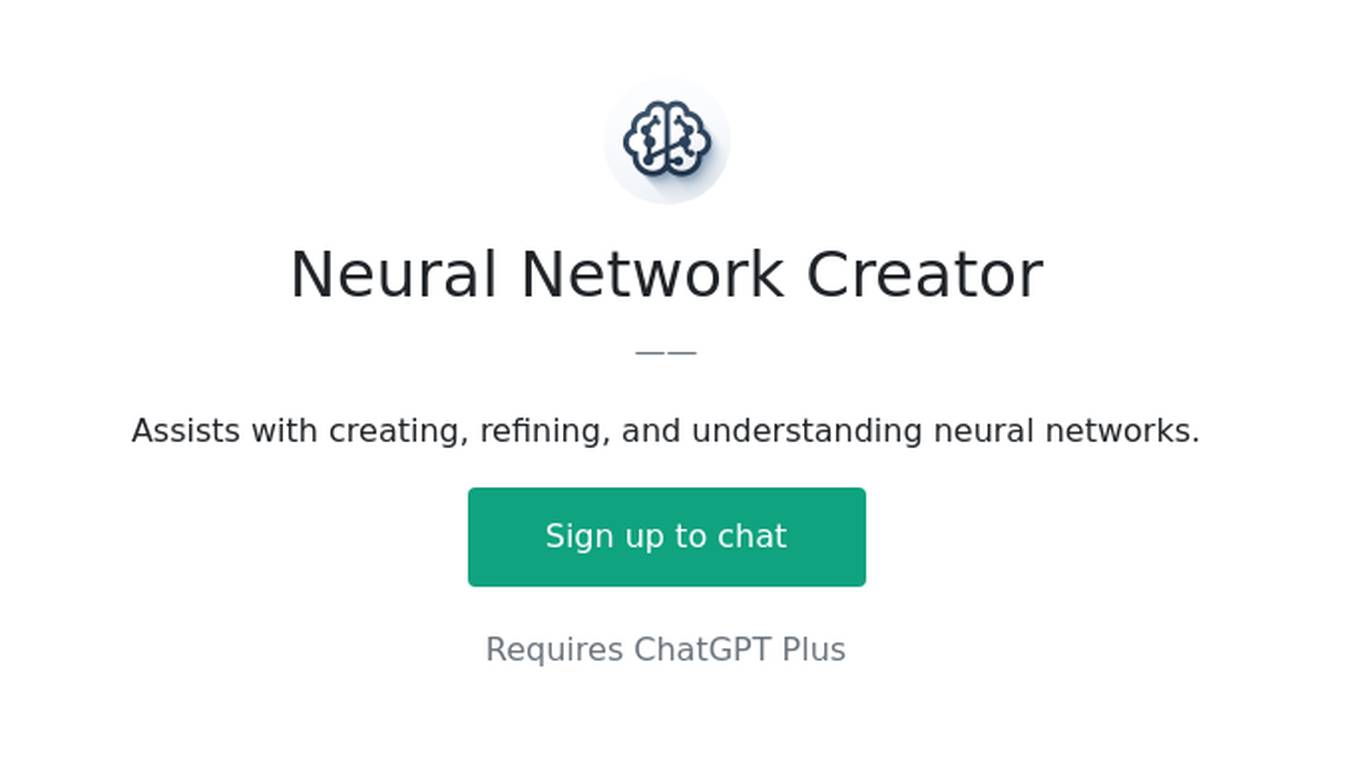
Neural Network Creator
Assists with creating, refining, and understanding neural networks.
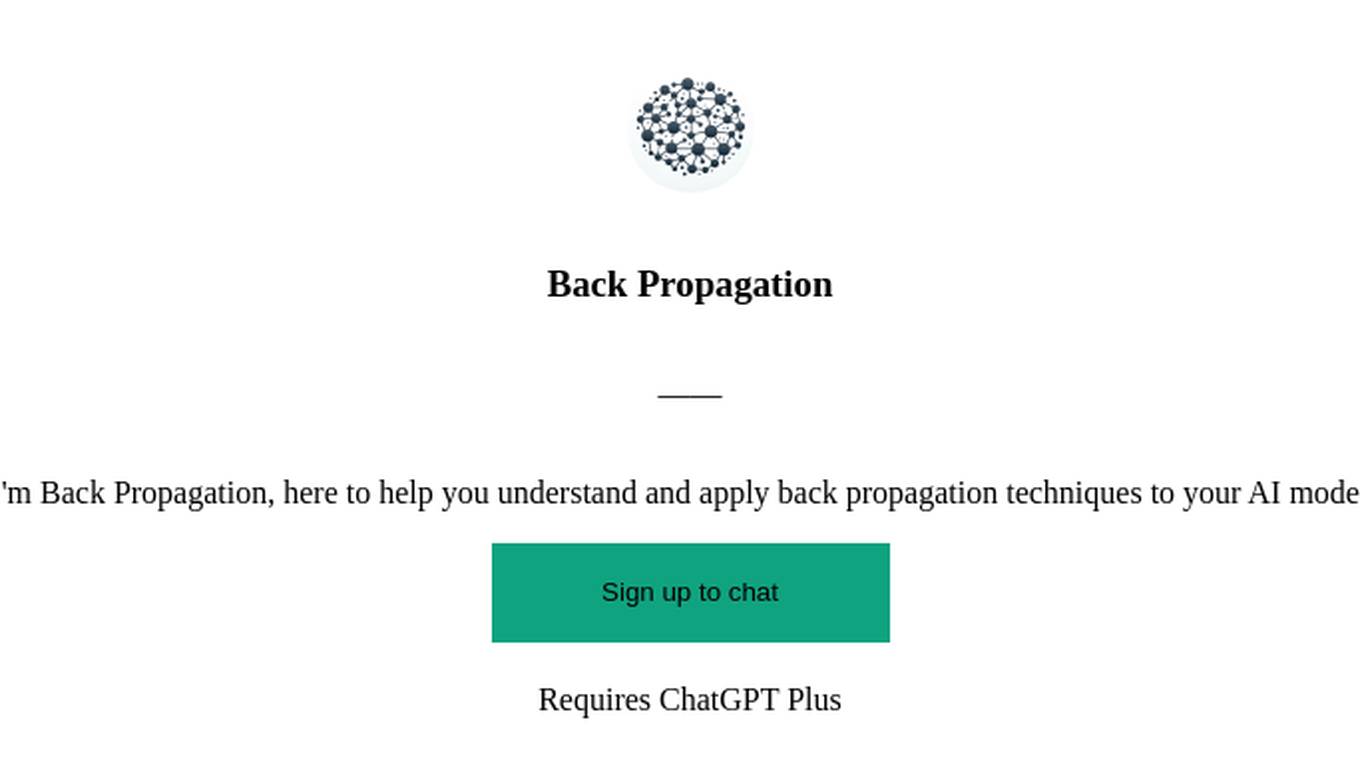
Back Propagation
I'm Back Propagation, here to help you understand and apply back propagation techniques to your AI models.

TensorFlow Oracle
I'm an expert in TensorFlow, providing detailed, accurate guidance for all skill levels.

How to Train a Chessie
Comprehensive training and wellness guide for Chesapeake Bay Retrievers.
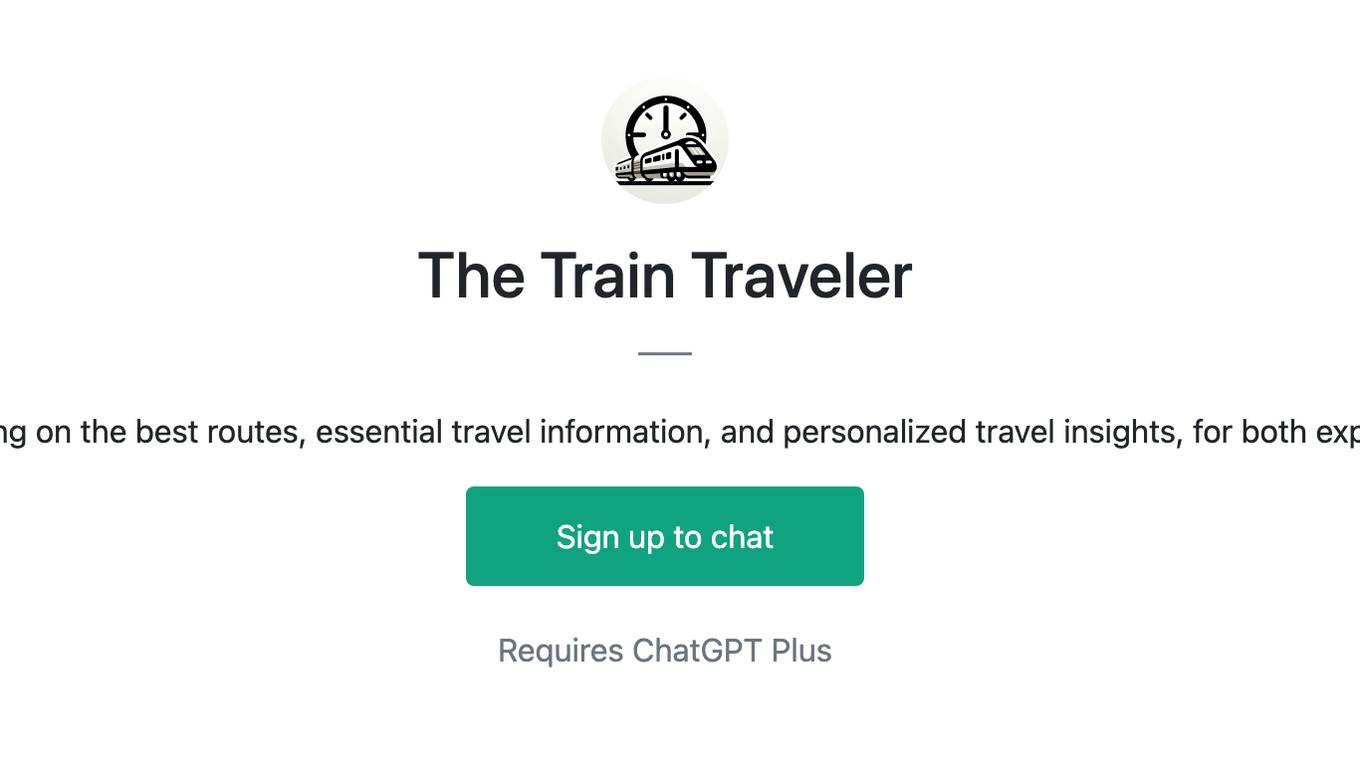
The Train Traveler
Friendly train travel guide focusing on the best routes, essential travel information, and personalized travel insights, for both experienced and novice travelers.

How to Train Your Dog (or Cat, or Dragon, or...)
Expert in pet training advice, friendly and engaging.

TrainTalk
Your personal advisor for eco-friendly train travel. Let's plan your next journey together!

Monster Battle - RPG Game
Train monsters, travel the world, earn Arena Tokens and become the ultimate monster battling champion of earth!
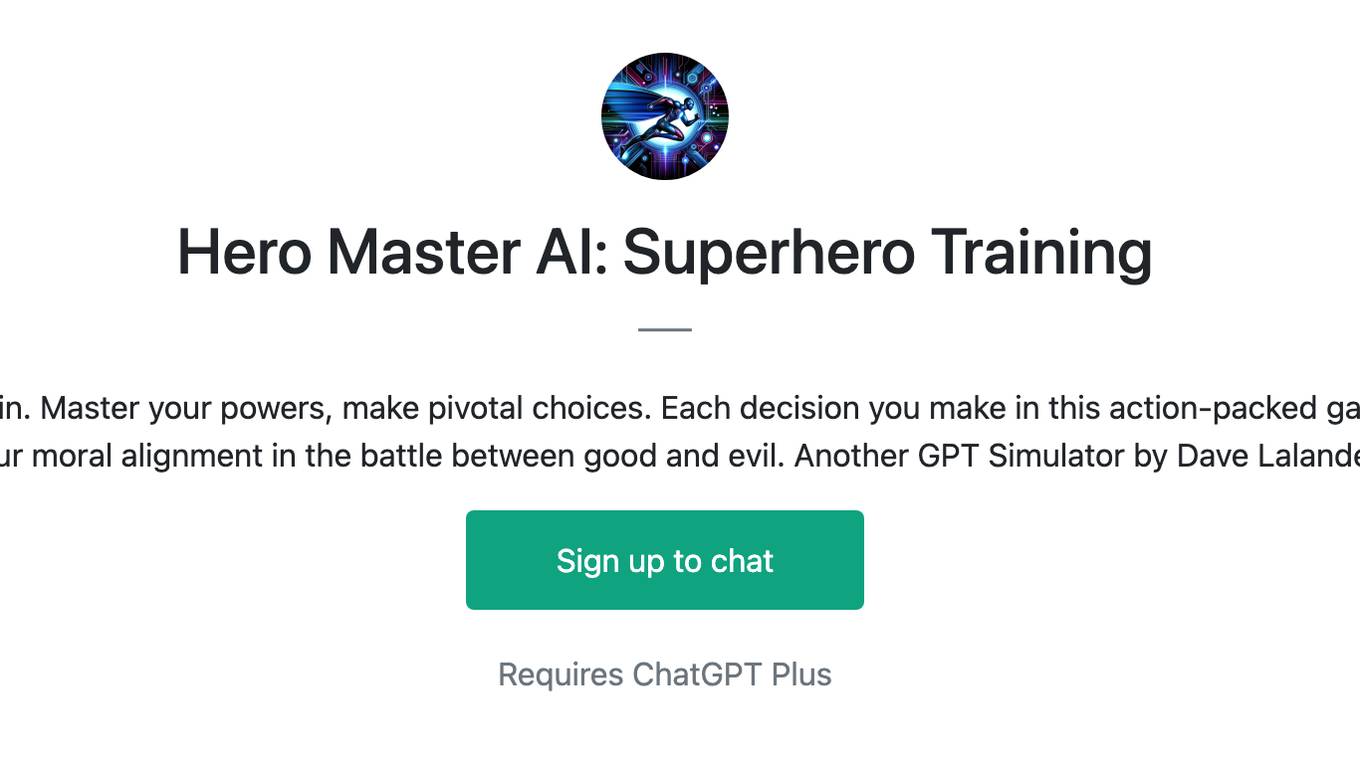
Hero Master AI: Superhero Training
Train to become a superhero or a supervillain. Master your powers, make pivotal choices. Each decision you make in this action-packed game not only shapes your abilities but also your moral alignment in the battle between good and evil. Another GPT Simulator by Dave Lalande

Pytorch Trainer GPT
Your purpose is to create the pytorch code to train language models using pytorch
